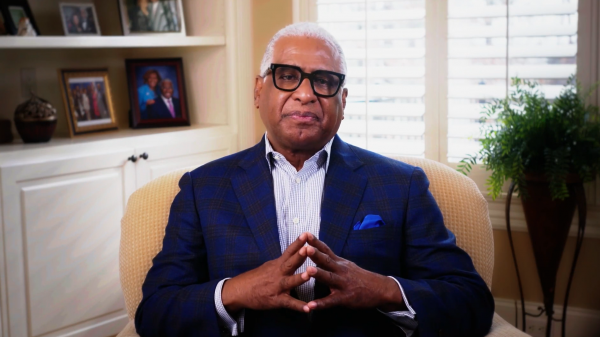“They can have my resignation today,” muttered one man, who wore a lapel pin reading “proud Alabama Democrat,” as he watched infighting among members of the State Democratic Executive Committee Saturday.
He wasn’t alone in his frustration.
“This is just too much, too much,” a woman muttered as she walked out the door, presumably to take a breather from the fray.
The fighting within the party was to be expected, as Democratic Party power broker Joe Reed attempted to make changes to the party bylaws. Party Chairman Randy Kelley called the changes “minute” and compared it to his church members fighting over changing the toilet paper.
But many of the young and LGBTQ members did not feel that the changes were minute at all; they say it could reduce their influence on the direction of the party.
The change that brought the largest amount of controversy among party members was the reclassification of diversity caucuses to “diversity constituencies” and the apparent combination of several diversity caucuses into a single Ethnic Minority Committee.
Where previously, the Hispanic, Native American, and Asian/ Pacific Islander Caucuses existed as separate entities, the proposed bylaws appeared to enter them into a single Ethnic Minority Committee.
Renaming of the Minority Caucus to the Prevailing Racial Minority, changing the name of the Youth Caucus to the Young Adult Committee, the addition of a Veterans Committee, and preservation of the LGBTQ+ Caucus were other proposed changes.
There was no mention of a Disabled Persons Caucus or Committee, whereas the current bylaws specify a Disabled Persons Caucus.
The auditorium of the Crump Senior Center was packed with at-large SDEC members, with two sections of chairs divided by an aisle
In Kelley’s address to the body, he noted that one section was predominantly Black, while the other was predominantly white.
“Even in the seating in the room, there are racial undertones,” Kelley said.
But that wasn’t the only divide, with many of the younger members on one side, and presumably the LGBTQ members as well.
“We’re united with the young folks who are taking control of the party, which is a positive” said David McGriff, an older white member of the committee.
The division of the party in the physical space was emphasized particularly through a vote on whether to have Vice Chair Tabitha Isner take control of the meeting.
The opposing side took issue with Kelley sitting at a table on the stage while Parliamentarian Tyna Davis effectively ran the meeting. Several members, clearly exasperated, argued over the bylaws with Davis, who didn’t back down that she could preside over the meeting, but eventually allowed the motion to be recognized.
Reed immediately moved to table that motion indefinitely. Reed’s motion just barely passed 63-60, largely according to the seating divide in the room.
At one point, Reed muttered about the opposition while walking out of the room clearly frustrated with the opposition. He had withdrawn his motion to make the changes to the bylaws. Reed was not present in the meeting room for comment following its adjournment, but the murmurs from the opposing side were loud and clear: he didn’t have the votes necessary to make the changes.
With the bylaws changes off the floor, an older Black member moved to adjourn the meeting.
But the support on that side of the room had deflated, and the opposition quashed the motion to adjourn by a comfortable margin.
“Y’all have lost your freaking minds,” member Uche Bean, a young Black woman from Birmingham, told the rest of the body. “We should be able to, as grown adults, sit here and say yay or nay and move forward. I don’t care if you don’t like the chair, if you don’t like the vice chair. You all are ridiculous. And this is very unsettling. And it’s frustrating. I shouldn’t have to drive 100 miles to sit here for hours to waste time over small bickering.”
Michael Rudolph, an LGBTQ+ at-large member, voiced his concern over Davis presiding over the meeting several times and made the failed motion to have Isner take over the meeting.
“If you are going to have a meeting proposed to change the bylaws, we wanted to go on record that we as a party right now are not even adhering to the current bylaws,” Rudolph said. “The fact we have not yet approved the minutes of when these officers were elected in the first place speaks to that.”
Davis admitted there are some conflicts within the current bylaws regarding how the meetings are presided.
Sheila Gilbert, chair of the Calhoun County Democrats, asked for someone to step up and be the voice of the party.
“It’s abhorrent to see how (Republicans) keep creeping in on our rights,” Gilbert said, referencing AG Steve Marshall’s comments on prosecuting women who take an abortion pill. “Somebody has to speak for the Democrats and say ‘this is not right.’ I’m asking who it is in this party that speaks for Alabama Democrats? We don’t need silence, we need a voice.”
There have been public tensions between Kelley and Isner after Kelley circulated an email to members admonishing Isner for her communications to members. Isner lost the race for chair to Kelley.
Kelley reiterated it’s natural for change to cause a stir, but said the party is going to have to be creative and innovative to move forward in this new age.
“This generation, Generation Z, they expect change, they were born into change,” Kelley said. “And we’ve got to change if we’re going to revitalize the party. We can’t run this party like we used to.”



















































